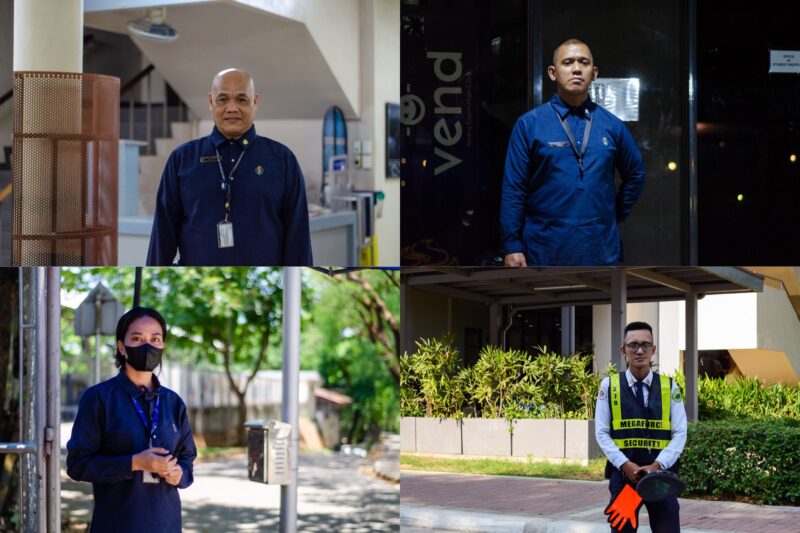Some women dare to redefine motherhood, some desire to conceive, and some actively choose not to. Nevertheless, no one is less of a woman.
ALTHOUGH THE world has made great strides in women empowerment, women are yet to achieve liberation from daily microaggressions. Many standards for women were traditionally imposed by the patriarchy, and they continue to persist in contemporary times.
Social constructs dictate appropriate clothing and behavior that merits comments like “Kababae mong tao (You are a woman, yet…),” “feminine” careers, and the right time to settle down. Against this pervasiveness, women who do not fit the mold tend to be crucified.
The pressure to conceive a child is one of the most ubiquitous expectations in Filipino culture. With motherhood as the litmus test for womanhood, three women across different realities reveal their stories that challenge the timeless inquiry on the essence of womanhood.
The spectrum of womanhood
Just as there is no one blueprint to womanhood, the struggles faced by women come in different forms.
Dr. Josevy Taguibao, PhD is a Clinical Psychologist from the University of Santo Tomas. She is many things: A daughter, a wife, a mental health professional, a counselor, and a passionate woman who acknowledges the world beyond her own. According to Taguibao, she aims to “help people improve their quality of life and a positive mindset.”
For Taguibao, research is not purely academic. “It is a way and means to the pursuit of a meaningful life,” she recognizes.
True enough, her specialization in Reproductive Psychology is a product of her nine-year wait trying to conceive a child. That is why in her qualitative phenomenological research “The Point of Waiting,” Taguibao explored infertility coping experiences of Filipino women with reproductive concerns.
On the same note, Chrina Cuna-Henson (BS COMTECH ‘08) was also inspired by her personal experiences as an adoption advocate and mother. She is the Founder and current Managing Director of ROHEI Foundation, a non-profit adoption and foster care organization seeking to end the Philippine orphan crisis.
At 15, fresh out of high school and into adulting, Henson considered motherhood as her eventual future. Growing up in a family with a stay-at-home mother, she envisioned a similar life as a full-time mom, driving her kids to soccer games and ballet classes.
The gears changed in 2015 after an umbilical cord accident led to the stillbirth of her firstborn. The 30 minutes she held the lifeless baby left her in a state of loss and confusion.
When a priest asked the mothers to stand up during the Mother’s Day Mass weeks after, Henson hesitated on whether she should. “I felt like a mother, but God took away the things that made me a mom,” she recalls thinking.
Reproductive health struggles also do not spare younger women. Gabriela* (2 BS ME) was only 14 when she was diagnosed with polycystic ovary syndrome (PCOS). While PCOS is a common disorder among women within the reproductive age group, its symptoms may vary in severity. For Gabriela, her condition caused intense pre-period cramps which once sent her to the Emergency Room.
The condition also affects her self-esteem as PCOS is linked to acne, abnormal hair growth, and excessive weight gain. While Gabriela only experiences some of these, she recognizes that some women often have it worse and confront more judgment than others. “With weight gain, society isn’t very good to [women] who don’t have their ideal body in mind,” she shares.
Even with vastly different lives, these women share the perseverance to face their struggles head-on.
The road less traveled
It was the loss of her own child that inspired Henson to look into the orphan and child-trafficking crisis in the country and eventually do work to help save Filipino children from grim futures. Currently, the ROHEI Foundation has been dedicated to providing mothers and pregnant women with prenatal care and counseling, as well as promoting adoption as an option for parents incapable of childrearing.
Henson emphasizes how an adopted orphan is one less child trafficked and abandoned on the streets. For instance, their foundation managed to contact a female sex worker about to sell her fifth child in exchange for drug money. Their team was able to save and provide foster care for the child.
Henson’s newfound commitment to this cause would lead her to adopt Chloe, a child who was at risk of being trafficked. “She did not come from my womb, I did not bear her physically, but is the love any different?… It’s not,” she says.
Being an adoptive mother has changed Henson’s life, but it was equally greeted with external judgment—from remarks dismissing Chloe as her “real child” to social workers questioning the adoption. Nevertheless, Henson takes these instances as opportunities to correct these misconceptions.
She clarifies that adoption does not have to be the last resort for those wanting to build families. “Adoption doesn’t have to be plan B. It wasn’t for me,” she shares.
Gabriela has also dealt with comments undermining her personal choices. Aside from being medicated on birth control and bearing the risk of infertility from PCOS, she has long been set on not having kids.
As a college sophomore, Gabriela is steadfast in her personal career goals with no plans of settling down. However, she continues to confront dismissive remarks from her family who assume an eventual change in her future plans.
Amid their personal struggles, Gabriela and Henson continue to challenge traditional prejudices that affect many women in the country.
Wearing different hats
In the Catholic-dominated Philippines, Taguibao points out that women are culturally expected to bear a child. Otherwise, a childless home is not considered a basic, functioning unit of society. She cites examples of stigma against married couples without children such as social reunion conversations about having babies.
Carrying into family dynamics, men also expect their nieces and daughters to get married and conceive. The same culture remains a struggle for Gabriela. She believes that women should not be pressured to have children so that they are given agency over their bodies.
“Women shouldn’t be confined to the idea that they need to have kids to have value,” she says while acknowledging the merit of women whose goal is motherhood.
Henson shares the same sentiment saying that the desire to mother—to care for and nurture another—is normal, but it is not everything. She adds that it does not have to revolve around conception; adoption is an equally beautiful and fulfilling way to have children.
As a mother of three and non-profit founder, Henson wishes for women to no longer be antagonized for taking on multiple roles. She concludes: “Was I incomplete before I married and had kids? No! I just wear different hats now. But the essence of my womanhood is… just me.”







